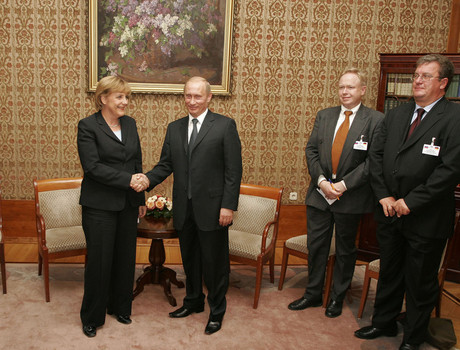On Sept. 20, Russian Finance Minister Anton Siluanov spoke at an investment conference in Sochi and stated that due to the continuing sanctions being imposed upon Russia, Russian businesses, and Russian business leaders, the Eurasian state should consider dumping all reserves or debt denominated in dollars, and transfer their financial programs to nations within the BRICS coalition. In fact, this shift in monetary policy was echoed earlier in the day by Prime Minister Dmitry Medvedev who announced that Russia, along with all other nations, should be trading in their own national currencies and outside the scope of a dollar controlled reserve currency.
Both Finance Minister Siluanov and Prime Minister Medvedev were outlining monetary policy changes that might become an option in the coming days should economic sanctions from the U.S. and European interests create more downside to the Rouble and Russian economy. And with more and more trade agreements being signed between the nations involved in the BRICS coalition, sooner rather than later may be the timeline for a complete shift away from dollar denominated assets and debt.
Russia's Prime Minister Dmitry Medvedev, told Rossiya TV in an interview earlier today, should conduct transactions in national currencies, bypassing cross-rates with the US Dollar, adding that "we can easily make mutual settlements directly," and the mechanism should be beneficial to both sides of transactions.
In the meantime, while speaking on the sidelines of an annual investment forum in the Black Sea town of Sochi, Mr. Siluanov said the Finance Ministry wants to diversify its investment basket, and is looking for higher yields without too much risks. He said the ministry will consider buying papers issued by Brazil, India, China and South Africa, which along with Russia are known collectively as the Brics countries.
"[We would like to] walk away from investing in papers of the countries that impose sanctions against us," Mr. Siluanov said, adding that the reshuffle would be carried out gradually. He didn't elaborate on when the first purchases of Brics debt may take place. - Zerohedge
Economic sanctions have been the two-edged sword for the U.S. that could potentially hurt both Russia, or themselves, dependent upon the counter-punch made by the Eurasian state in response to the sanctions. And while the U.S. economy is strong enough to handle any trade restrictions imposed upon them by Russia, the weak link in the Western coalition has always been Europe, which already has backtracked on standing firm with America regarding their entire package of sanctions.
Sanctions have also been the catalyst for accelerating a global shift away from the dollar and the reserve currency, as restricting Russian government and business interests from access to the SWIFT system has merely led Russia to collaborate with the BRICS coalition to create their own bank and alternative currency swap mechanism.
Russia is publicly laying out the options for the world to see should the United States or Europe continue down the path of more or greater economic sanctions. And while in the short term these sanctions will have a very real effect on the Rouble and Russian economy, in the long run America's actions could very well backfire and completely wrest control of the reserve currency away from dollar hegemony, and bring the U.S. economy to its knees while Russia and China springboard forward to become the economic kingpins of tomorrow.


